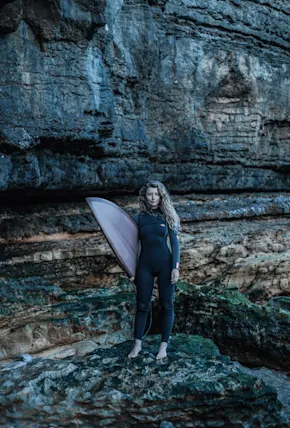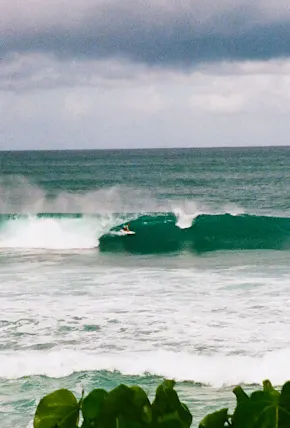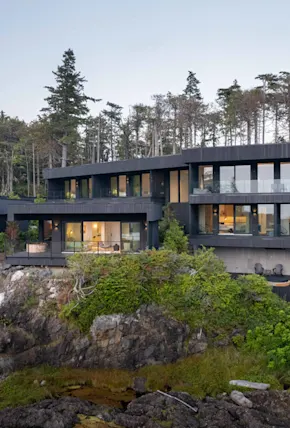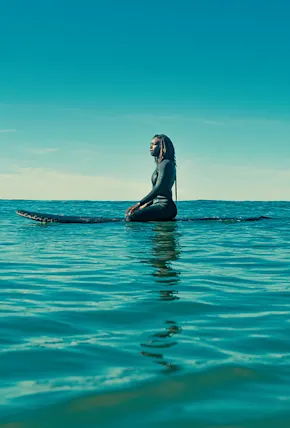Capturing the beauty, joy, and complexities of the ocean is no easy feat. It takes not only patience and skill but also a deep understanding of the ebbs and flows of our planet’s most abundant resource. Photojournalist Gabriella Angotti-Jones has been captivated by and has been studying the ocean since she was a child. Now, she’s using her talents as a visual storyteller to show the many ways folks live by and enjoy the ocean.
A self-described “very curious and observant person,” Angotti-Jones began her career in news media, working as a staff photographer at the L.A. Times and now frequently contributes to the New York Times, among other outlets. Feeling the pull to create more personal work, she recently fixed her lens on her friends, and the ocean—an organic decision that has led to her most recent project.
“I didn't know I was going to make a book until I had a post go viral,” Angotti-Jones shares, “and my mentors Ben Brody and Peter van Agtmael saw it and said, ‘This is a book. You should make a book.’” I Just Wanna Surf, named by Angotti-Jones for the expletive she and friends often shared while in the ocean, went to print in late 2022 and has been met with widespread praise. The unique mix of raw, nostalgic film images shared alongside personal diary-like entries in a zine-like format makes this book feel like a much-needed fresh take in the outdoor space.
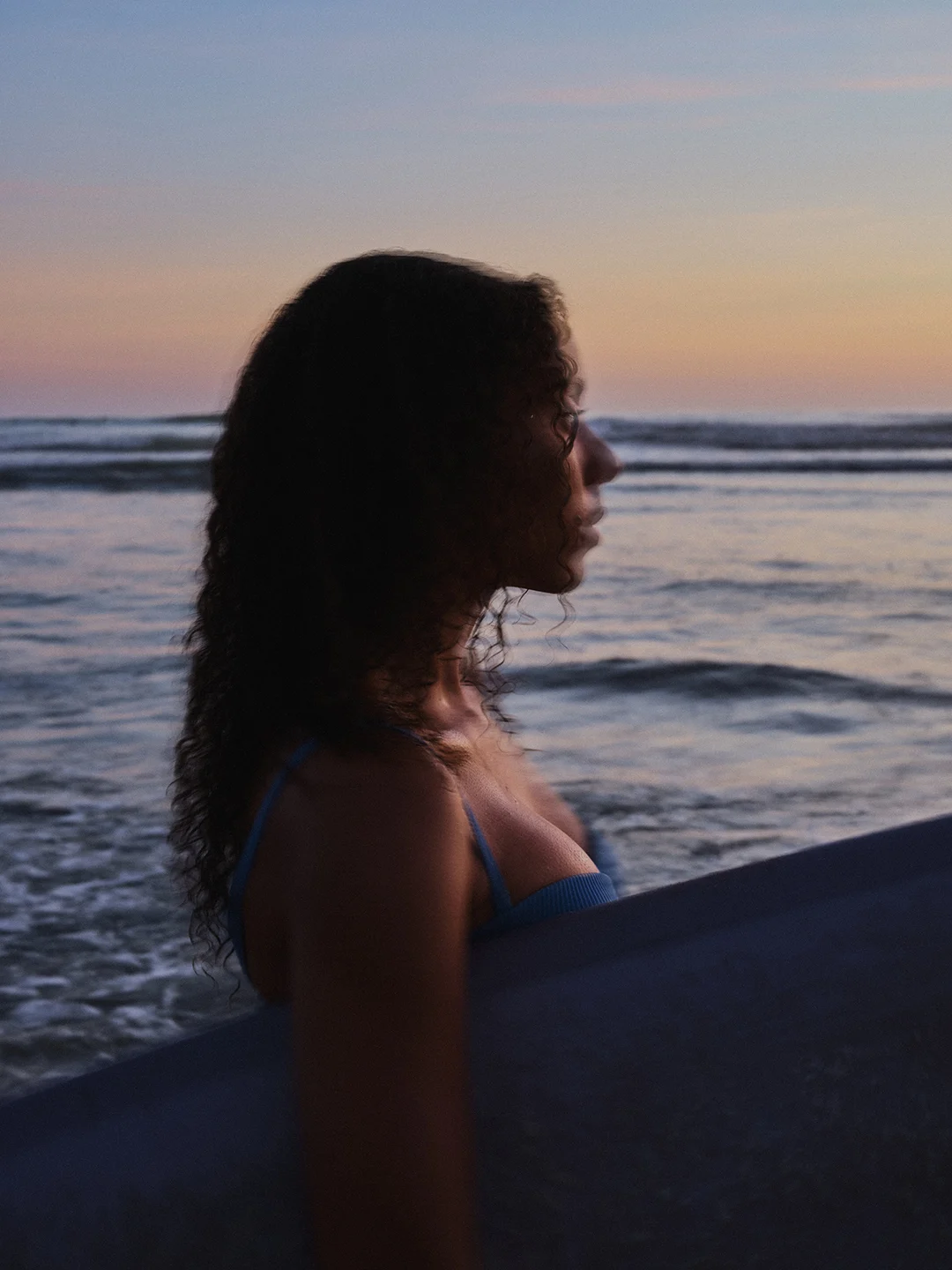
Gabriella Angotti-Jones | Photo by Basil Vargas
Recently, on a bright Los Angeles afternoon, we spoke with Angotti-Jones about why she keeps returning to the ocean, how her relationship with depression informs her work, why this book matters in the face of mainstream surf media, and how she intends to use her work to further ocean conservation and community connection. Read on for the full conversation.
Let’s start at the beginning, tell us a little about your aquatic journey. Did you grow up around the water? Were you always someone who loved the ocean?
I grew up in a small beach town called Capistrano Beach. It's sandwiched between Dana Point and San Clemente, California, just south of Laguna Beach––walking distance from the ocean. My mom would take us to the beach pretty much every day after school. Eventually, she put me in a surf camp and I started surfing. I got my first surfboard when I was about nine and then I surfed with my neighbors and family friends until I was 12. And then I stopped because I just felt a lot of pressure because that’s the age when competitive surfing starts, but then I started studying the ocean at the Ocean Institute in Dana Point. My main focus was marine science and I ended up doing research internships out there.
I pretty much stopped surfing consistently until I turned 25, 26, then caught the bug again. And now I've been surfing consistently for three years.








